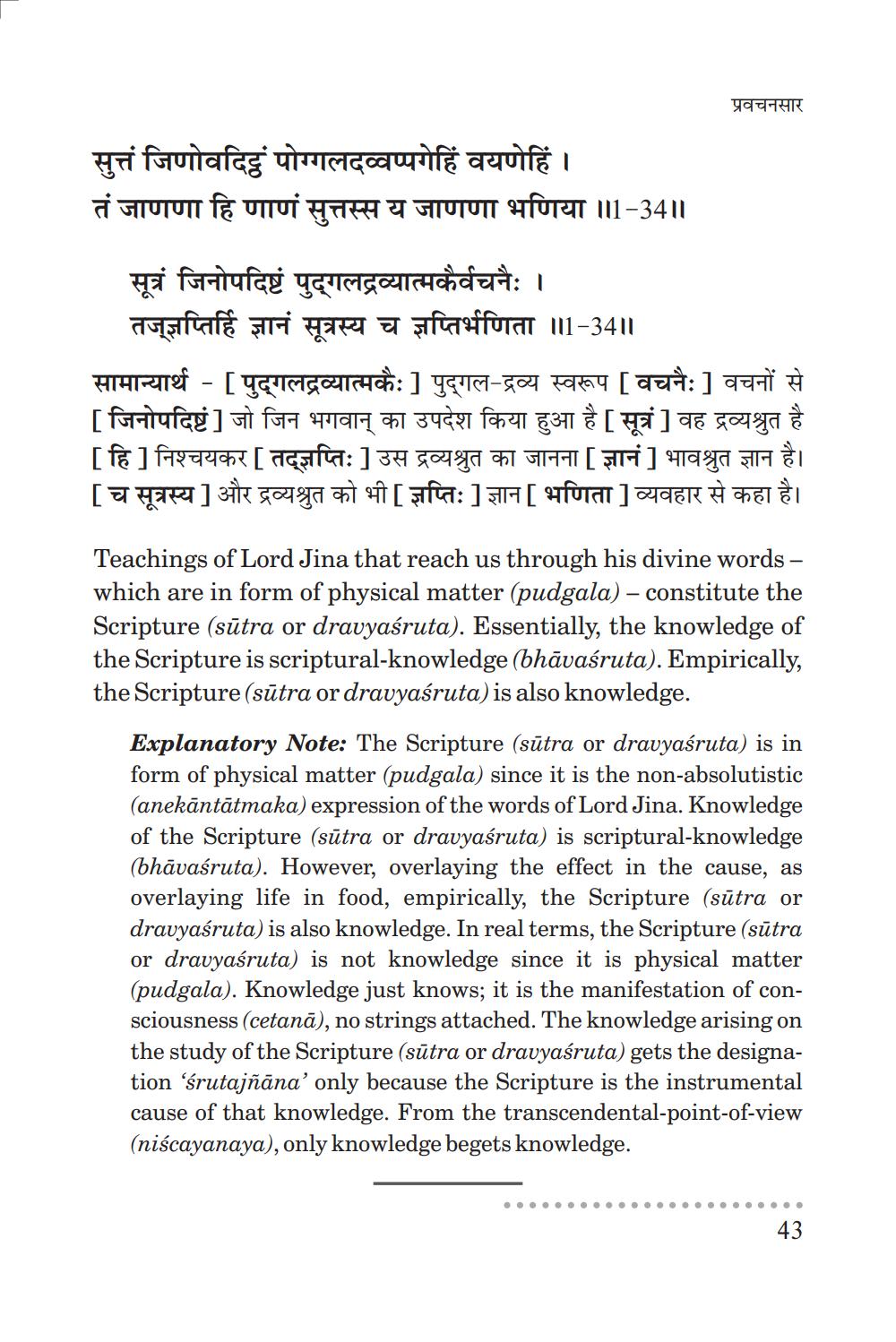________________
सुत्तं जिणोवदिट्ठ पोग्गलदव्वप्पगेहिं वयणेहिं । तं जाणणा हि णाणं सुत्तस्स य जाणणा भणिया ॥1-34॥
सूत्रं जिनोपदिष्टं पुद्गलद्रव्यात्मकैर्वचनैः । तज्ज्ञप्तिर्हि ज्ञानं सूत्रस्य च ज्ञप्तिर्भणिता ॥1-34॥
प्रवचनसार
सामान्यार्थ – [ पुद्गलद्रव्यात्मकैः ] पुद्गल-द्रव्य स्वरूप [ वचनैः ] वचनों से [ जिनोपदिष्टं ] जो जिन भगवान् का उपदेश किया हुआ है [ सूत्रं ] वह द्रव्यश्रुत है [ हि ] निश्चयकर [ तद्ज्ञप्तिः ] उस द्रव्यश्रुत का जानना [ ज्ञानं ] भावश्रुत ज्ञान है। [ च सूत्रस्य ] और द्रव्यश्रुत को भी [ ज्ञप्ति: ] ज्ञान [ भणिता ] व्यवहार से कहा है।
Teachings of Lord Jina that reach us through his divine words - which are in form of physical matter (pudgala) - constitute the Scripture (sūtra or dravyaśruta). Essentially, the knowledge of the Scripture is scriptural-knowledge (bhāvaśruta). Empirically, the Scripture (sūtra or dravyaśruta) is also knowledge.
Explanatory Note: The Scripture (sūtra or dravyaśruta) is in form of physical matter (pudgala) since it is the non-absolutistic (anekāntātmaka) expression of the words of Lord Jina. Knowledge of the Scripture (sutra or dravyaśruta) is scriptural-knowledge (bhāvaśruta). However, overlaying the effect in the cause, as overlaying life in food, empirically, the Scripture (sutra or dravyaśruta) is also knowledge. In real terms, the Scripture (sūtra or dravyaśruta) is not knowledge since it is physical matter (pudgala). Knowledge just knows; it is the manifestation of consciousness (cetana), no strings attached. The knowledge arising on the study of the Scripture (sūtra or dravyaśruta) gets the designation 'śrutajñāna' only because the Scripture is the instrumental cause of that knowledge. From the transcendental-point-of-view (niscayanaya), only knowledge begets knowledge.
...
43




